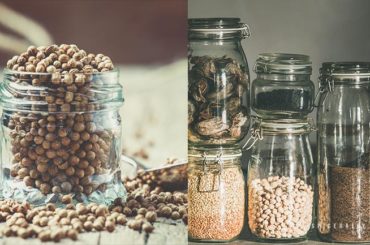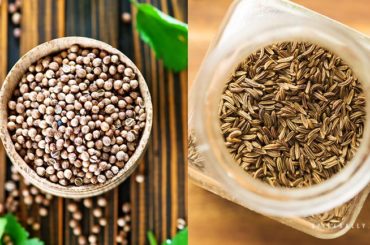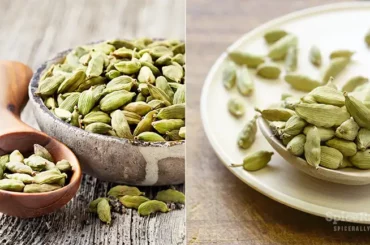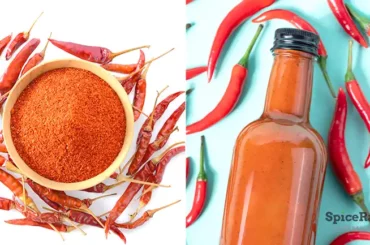Cinnamon is a well-loved spice that was discovered long ago and has many uses in industries such as pharmaceutical, cosmetic, and food processing. In fact, there are a few kinds of cinnamon that are available in the market. And, today’s match is Korintje cinnamon vs Ceylon cinnamon.
If this is your first time hearing that there is more than one type of cinnamon, then it can get quite confusing. You may have a lot of questions in mind– which one is better than the other? What is the difference between the two? Can you use the two interchangeably?
In hindsight, these two kinds of cinnamon are similar yet have notable differences from one another.
It’s a battle between the two most known types of cinnamon. In this quick read, you’ll learn about Korintje and Ceylon cinnamon and the differences and similarities the two have.
Korintje Cinnamon Vs Ceylon Cinnamon
Including cinnamon in any dish is a great way to add zing and some spice, it brings an intense flavoring that many enjoy.
Cinnamon is a spice that came from the Cinnamomum tree–found in its inner bark. It’s a popular ingredient for medicinal and culinary uses. This spice contains eugenol and cinnamaldehyde which are two substances responsible for the aroma and flavoring of cinnamon.
As mentioned above, there are many varieties of cinnamon–Korintje and Ceylon are two of the commonly known ones. So, let’s tackle the two kinds of cinnamon individually before making a comparison.
| Korintje Cinnamon | Ceylon Cinnamon | |
| Scientific Name | Cinnamomum Burmannii | Cinnamomum Verum |
| Origin | Indonesia | Sri Lanka |
| Tree Height | 22 ft. | 32-49 ft. |
| Flavor Profile | Bittersweet; Spicy, woody with hints of clove | Mildly sweet and fruity |
| Scent Profile | Deep and pungent | Floral and citrusy |
| Color | Dark reddish-brown | Tan or brown |
| Coumarin Content | 2.15g per kilogram | 0.017g per kilogram |
| Health Benefits | 1- Lowers cholesterol levels 2- Fights against PCOS 3- Full of antioxidants 4- Anti-inflammatory | 1- Reduce cholesterol 2- Reduce inflammation 3- Can treat cancer 4- Full of antioxidants 5- Potential for diabetes treatment 6- Manages blood pressure |
| Culinary Uses | 1- As a spice 2- To preserve food 3- To flavor dishes 4- As a drink | 1- As a spice 2- To preserve food 3- To flavor dishes 4- As a drink |
| Price Range | Approximately $6.99 per ½ cup | Approximately $10.99 per ½ cup |
| Availability | Can be found in spice shops, grocery stores, and online stores | Can be purchased from specialty stores, spice stores, and some online sellers |
| Shelf Life | 3 to 4 years (ground form) 2 to 3 years (cinnamon sticks) | 3 to 4 years (ground form) 2 to 3 years (cinnamon sticks) |
| Harvest Season | February to September | Beginning of the rainy season in Sri Lanka |
What is Korintje Cinnamon?
Korintje cinnamon, also known as Indonesian cinnamon, was first discovered in western Sumatra and is harvested from the Cinnamomum Burmannii tree. This type of cinnamon is typically used when making holiday cocktails or desserts because of its nostalgic taste.
What is Ceylon Cinnamon?
Ceylon cinnamon is generally referred to as “true cinnamon” not because all the other types are fake but because its flavor is the most preferred compared to the rest. It is native to Sri Lanka and some southern parts of India. This kind of cinnamon can be found in the inner bark of the Cinnamomum Verum tree.
Korintje Cinnamon Vs Ceylon Cinnamon – Use In Cooking
Actually speaking, any type of cinnamon would necessarily add a distinctive flavor to any dish they call for. Likewise, Korintje cinnamon and Ceylon cinnamon have the ability to get along really well with your meals.
However, due to the effectiveness of the price and availability, Koritnje cinnamon is apparently the most popular type of cinnamon used in the USA. It is also considered as the “baker’s cinnamon” as it is the variety that is widely employed in baking. Since Ceylon cinnamon is very high in cost and exotic, many commercial bakers go for Korintje cinnamon as their best choice.

Korintje cinnamon would also go well with savory dishes. But primarily, it is used in sweet dishes like cakes and biscuits, and beverages. And, interestingly, it is the type of cinnamon that most US-based Starbucks use in their wide range of cinnamon-flavored coffee, tea, and other drinks.
But, despite the high price tag and lack of availability, the flavor of Ceylon cinnamon is still far better than anything. Especially, when it comes to sweet dishes and beverages, Ceylon cinnamon is in the front of the line, unbeaten!
Coumarin in Cinnamon
All kinds of cinnamon contain this substance called coumarin, but this compound can be found in other plants. However, the main source of coumarin in the human diet is found in cinnamon.
Coumarin is said to be harmful when consumed in large doses, which is what sparked the fear of cinnamon usage. Studies have shown that coumarin can cause kidney and liver damage among rodents but similar incidents have been reported in humans–just not as common as you think.
The Tolerable Daily Intake (TDI) for coumarin is 0.05mg/lb (0.1mg/kg)
Korintje contains 1% coumarin whereas Ceylon only has 0.004% of it. Ceylon has a much lower coumarin content compared to Korintje cinnamon.
This means that even using 1-2 teaspoons worth of Korintje may just be enough to go over the TDI of coumarin.
Conclusion Of Korintje Cinnamon Vs Ceylon Cinnamon
As you can see, the two kinds of cinnamon have some notable differences but share some similarities as well. Both Korintje and Ceylon are delicious, but it’s much safer to stick to Ceylon for its low coumarin content.
Korintje however is much more accessible and cheaper compared to Ceylon, so it’s widely available.
It’s possible to interchange the two as there will only be a slight difference when it comes to flavor.
Nonetheless, the two kinds of cinnamon have a lot of health benefits while still being a tasty spice to add in one’s dish.




